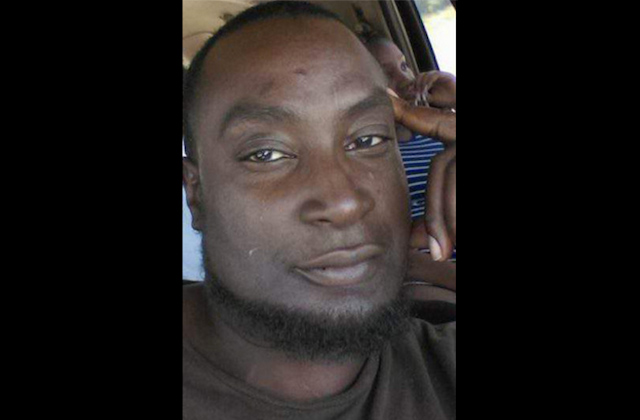On September 20, Charlotte-Mecklenburg Police officer Brentley Vinson shot and killed 43-year-old Black man Keith Lamont Scott, sparking weeks of protest.
Today (November 30), Mecklenburg County District Attorney Andrew Murray announced that Vinson will not face charges. “It is my opinion that officer Vinson acted lawfully when he shot Mr. Scott,” Murray said at today’s press conference. “We cannot know what Mr. Scott’s intention or reasoning were that day, and Officer Vinson could not have known that at the time.”
He went on to say that public opinion did not factor into the determination, and make clear exactly what his department concluded: “This office does not examine if the officer followed CMPD directives … the only determination this office is making is whether or not Officer Vinson acted in self defense.” He did not say if the police department would make any decisons regarding disciplinary actions.
He also said that decision that “criminal charges were not appropriate” in this case, does not mean that it’s okay to dismiss protestors’ call for justice.
Before making the announcement, Murry explained that the decision rose from the collaborative efforts of his executive team, his homicide team and 15 career prosecutors who reviewed the State Bureau of Investigation’s report. He stressed that the prosecutors agreed unaminously in their recommendation to not indict.
Following the shooting, officers said that the confrontation began when Scott exited his vehicle with a firearm. They later said that he was preparing to smoke marijuana in his car and that officers approached him because they saw him with a weapon in his vehicle. A gun was recovered from the scene, though dash and body camera video do not show Scott holding or raising the gun that officers said he would not put down in the seconds before he was shot.
Today, Murray showed previously unreleased 7-Eleven video and images from the scene of the shooting that he says proves that Scott was wearing a holstered gun on his ankle. At the press conference, Murray said that the officers all saw the gun, that “Scott assessed each of them with a trance-like look,” that they felt their lives were in imminent danger and that Vinson was justified in shooting in self defense. He also said that Scott’s DNA was on the slide and grip of the gun, and attributed the fact that the state bureau’s determination that a fingerprint found on the gun wasn’t a definite match for Scott to a technology mismatch.
{{image:2}}
Scott’s family maintains that he was reading a book in his car when he was approached by police and did not own a gun. Murray said that a composition book was found in the vehicle, but said it did not match descriptions provided by witnesses. Officers attributed Scott’s “trance-like” state to drugs. The medical examiner’s autopsy report showed that the only drugs in Scott’s system were those he was prescribed for his traumatic brain injury medications. Murray said that a later report found evidence of marijuana.
The city issued the statement below following the announcement:
City of Charlotte statement regarding the @CharMeckDA #KeithScott announcement. (@CMPD statement available here: https://t.co/OxVTRM60uP) pic.twitter.com/nqrN2yyYVw
— City of Charlotte (@CLTgov) November 30, 2016
Scott’s family and attorneys held a press conference after the announcement and explained that they might pursue a civil suit. His wife declined to speak directly, but the team said that police need more training in interacting with people with traumatic brain injuries and that the policy of defaulting to internal investigations for police shootings should be reconsidered. A member of the team also raised concerns that a man with a gun in an open carry state was deemed dangerous, despite the fact that he was not pointing the gun at the officers or anyone else.
Watch a Facebook stream of the press conference below, courtesy of local station WSOC:
Read the full district attorney’s report here.
*Article has been updated to include statements, video and a link to the district attorney’s report.
